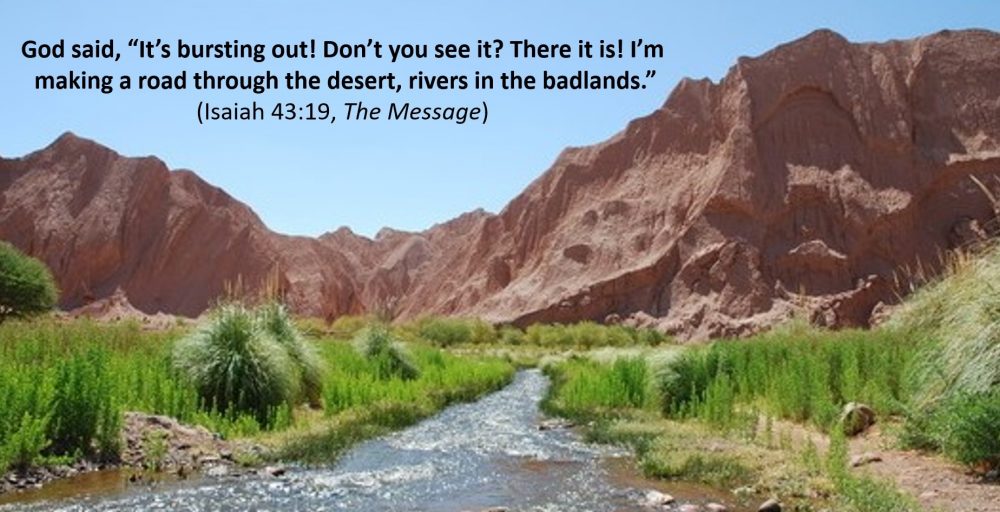(This blog is also available as a video at https://youtu.be/9spH7DAw2z8.)
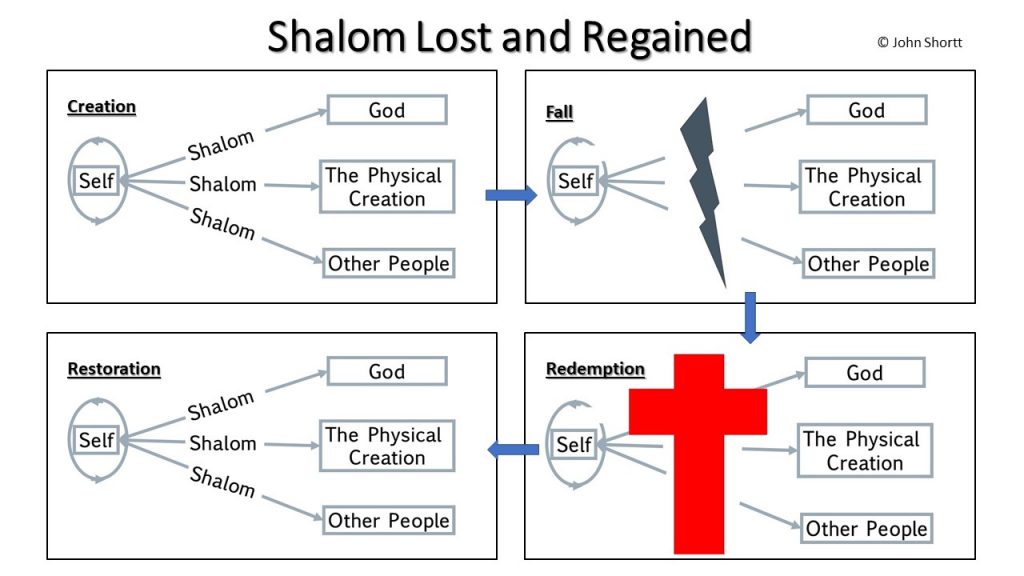
‘And the people stayed home’ is the first line of a prose poem that went viral in March this year. It was written by retired teacher Kitty O’Meara of Madison, Wisconsin, and published in her blog under the title ‘In Time of Pandemic’. Within weeks, it was inspiring thousands of posts on social media around the world. It was being set to music and translated into other languages. It had resonated so deeply with people everywhere that the writer was hailed as ‘the poet laureate of the pandemic’. To me, this amazing response is an expression of a deep human longing for what the Old Testament scriptures call ‘shalom’.
What is shalom? It is usually translated into English as ‘peace’ but, in ordinary language, that word is too often used with the negative sense of freedom from war, civil unrest, disturbance, dissension, anxiety or inner conflict for it to encompass all that ‘shalom’ embraces. It has instead the positive significance of wholeness, completeness, integrity, soundness, community, connectedness, righteousness, justice and well-being.
In the Septuagint Greek version of the Old Testament, shalom is translated as ‘eirene’, the word from which we derive ‘irenic’ and the lovely name Irene. In New Testament times, that word had the same largely negative ordinary language meaning as our contemporary English word ‘peace’ does but the New Testament itself carries over from the Old Testament the full positive significance of shalom.
One of my favourite writers, philosopher Nicholas Wolterstorff, writes this:
“Shalom is present when a person dwells at peace in all his or her relationships: with God, with self, with fellows, with nature.
… To dwell at peace in one’s relationships, it is not enough, however, that hostility be absent. Letting live is not yet shalom. Shalom is enjoyment in one’s relationships. … To dwell in shalom is to enjoy living before God, to enjoy living in one’s physical surroundings, to enjoy living with one’s fellows, to enjoy life with oneself.” (Educating for Life, p. 101)
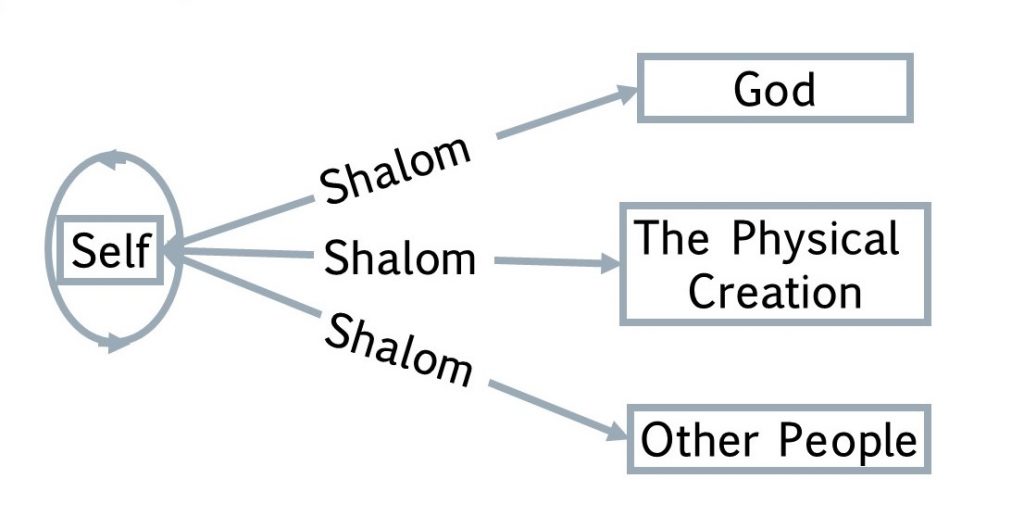
Shalom is not just an inner feeling, it is a relational matter – it has to do with our relationships with God, with others, with ourselves and with the wonderful world he has created. This is what we were made for, how it was meant to be. To put it in the form of the usual English rendering of ‘ubuntu’ (which I talked about in a recent blog), I am because God is, I am because the physical world is and I am because we are.
It is these relationships that make us the human beings that we are, made by God in his image, creatures of flesh and blood, made to be together with one another, to love God, to care for and tend the physical Creation and to love one another.
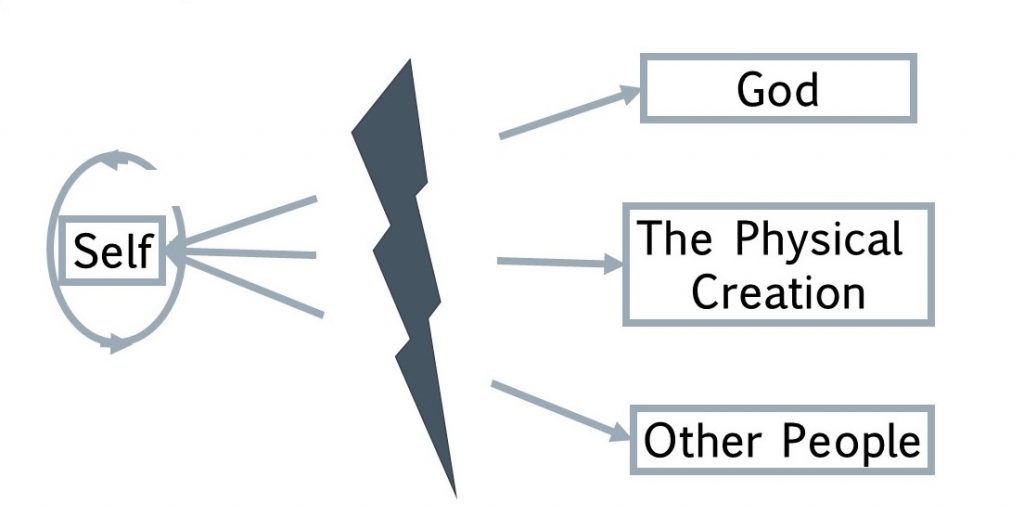
However, shalom was lost when we fell into sin with catastrophic effects on all our relationships. The thunderbolt of our Fall shattered our relationships of shalom with God, with Creation and with one another. We could no longer walk with God in the Garden and know him walking with us in the cool of the day. The whole physical creation is affected, the ground is cursed and Paul says in Romans chapter 8 that the creation was subjected to frustration and decay. Our relationships with one another were broken, jealousy and hatred came in.
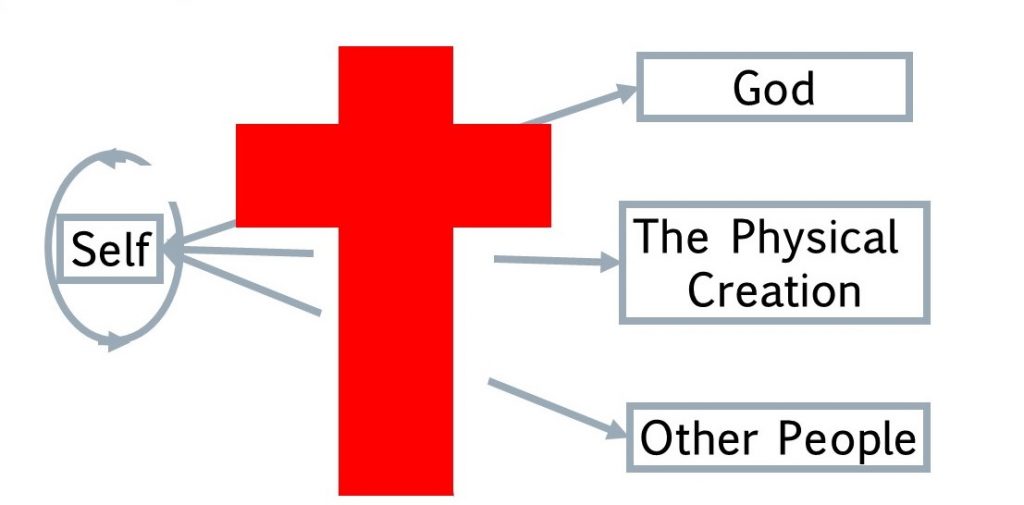
But a second Adam came to the rescue! Jesus came to overcome sin and death by himself going to the cursed death of the Cross. He came to restore shalom. Paul says in Colossians chapter 1:
“For God was pleased to have all his fullness dwell in him, and through him to reconcile to himself all things, whether things on earth or things in heaven, by making peace (EIRENE/SHALOM) through his blood, shed on the cross. … This is the gospel that you heard and that has been proclaimed to every creature under heaven.”
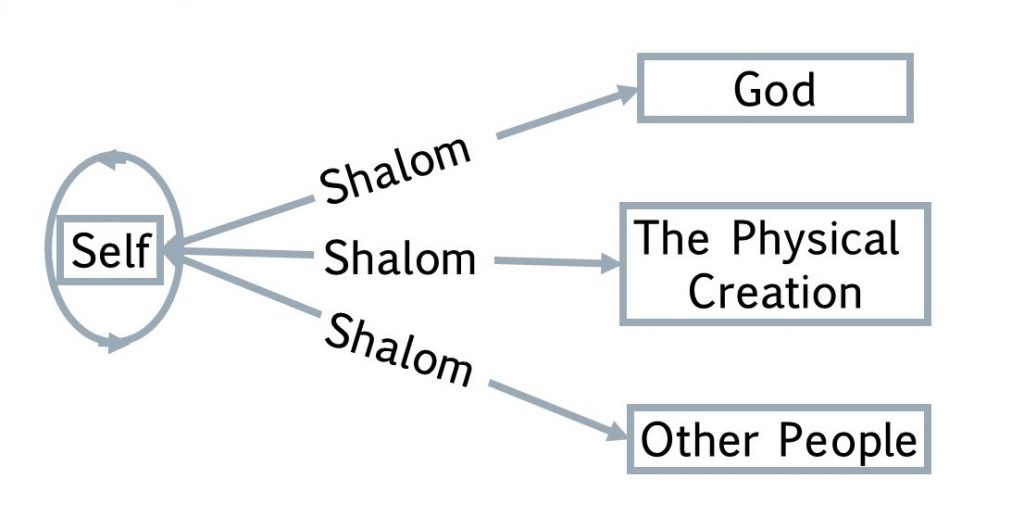
There is a world to come in which shalom is fully restored. It is the world of what the Bible calls “the promised new heavens and the promised new earth, all landscaped with righteousness” (1 Peter 3:13, The Message). It is the world of which the Old Testament prophet speaks: “The wolf will live with the lamb, the leopard will lie down with the goat, the calf and the lion and the yearling together; and a little child will lead them”. (Isaiah 11:6, NIV)
In her poem, Kitty O’Meara talks of the people listening, listening more deeply and being joined together. In the valley of the shadow of the pandemic, we are discovering afresh the value of human relationships, finding ourselves exchanging greetings with complete strangers, chatting (at two metres distance) with people in our neighbourhood to whom we had barely spoken before.
I’ve found that this also stretches back into the community of memory, the community of people who have had a shaping impact upon us. Two students whom I taught as a schoolteacher several decades ago have recently sent me Facebook friend requests which I was delighted to receive.
Kitty O’Meara also talks of a healing of the earth as people make new choices and dream new images of our relationship with the physical creation. Many people are discovering afresh the childhood or teenage joys of walking, running and cycling. We smell the clean air, notice the cotton wool clouds in the clear blue sky and listen to the song of the birds.
Val and I are enjoying watching American birds via the live webcam at the Cornell Lab Feederwatch. It is so real on the TV screen that we hesitate to go too close lest we scare the blue jays, goldfinches, multiple varieties of woodpecker and many other birds on the feeders!
‘And the people stayed home’ also hints at relationship with God in its mention of meditation and prayer. Our home church has had rather more people viewing our online worship than we ever had in services in ‘normal’ times and this seems to be the experience of many churches.
All of this is evidence, I believe, of a deep human longing for shalom. The likes and shares of Kitty O’Meara’s poem say that this is so. But, as we dream new images, let us not forget that this longing may be felt most deeply by those for whom the experience of the impact of the pandemic is very hard – those staying home with an abusive family member, those weeping for loved ones they could not be with as they passed away, dementia sufferers who can’t understand why everything seems so different, those facing unemployment or the bankruptcy of a business, those health workers preparing for another day at the front-line of the battle with the coronavirus, those crowded together in refugee camps and so many, many more.
Let us pray.
Father God, help us to know your shalom in our hearts, the peace that is given by the Prince of Peace, the peace that transcends human understanding. Help us to be seekers of shalom in all our relationships with others, especially with those for whom this time of pandemic is very hard. In Jesus’ name, Amen.
(This blog is also available as a video at https://youtu.be/9spH7DAw2z8.)
P.S. If you would like to be notified when new blogs are posted, please EITHER (1) email me through the contact address on this website OR (2) message me if you have come here via a link posted on Facebook.
